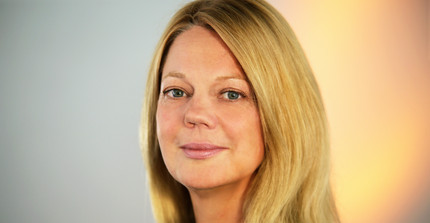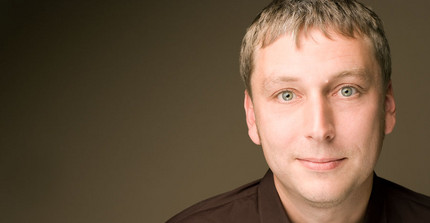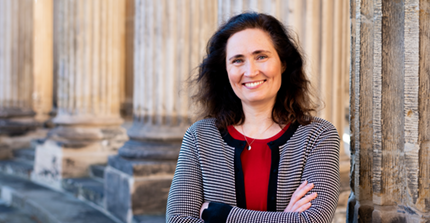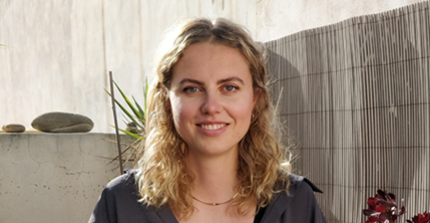Coaching, psychological and psychosocial Counseling
On a basic level, (psycho-)social and psychological counselors and coaches work with children, teenagers and adults in order to support them in overcoming personal problems or solving difficult life questions and conflicts. Depending on the counseling approach, context and specialization, counseling can touch all areas of life or be limited to one specific field (e.g. debt advisory or social counseling, etc.)
The description „counselor“ is not legally defined in Germany, which leads to it being utilized in all kinds of contexts – from sales to consulting – even if, strictly speaking, they do not automatically imply unbiased counseling free of any conflicts of interest (as it does in its actual meaning). But even within the field of psychosocial counseling, terms are sometimes used interchangeably and create a certain overlap. Possible subject areas for counseling are educational or occupational questions, as well as the processing of personal experiences (counseling in case of an abortion, for example) and political and social issues (such as possible compensations for target groups subject to discrimination). Counseling can take place on a freelance-basis or within an institution (e.g. churches, counseling organizations, schools, universities, etc.). What all of these (psycho-)social and psychological forms of counseling have in common is that they are voluntary, non-binding and aim to reach a previously defined counseling goal.
One must differentiate between social and process-oriented forms of counseling/coaching from occupational fields such as expert advisory, that do not encompass any psychosocial components (e.g. offering financial advice), especially given that these are usually driven by an economic interest. The former should also not be confused with political or corporate consulting.
Differentiating between (psycho-)social and psychological counseling proves to be more difficult. Differences less frequently lie in the counseling context, but more so in the specific abilities, knowledge and/or qualifications of the counselor. Psychological counseling focuses on the clients’ emotions and their personal problems, as well as psychological crises, stressors or social conflicts. Like psychosocial counseling, it often takes place in the context of daily life and is offered by organizations (specialized in migration, conflict or pregnancy counseling, for example) and community or educational institutions (school counselors, counseling services at universities, etc.), sometimes even digitally or on the phone. As in psychosocial counseling, psychological counseling does not aim to establish specific behavioral instructions, but rather guiding the person to a solution suited to them. Unlike psychosocial counseling, psychological counseling exclusively concentrates on a client’s psyche, personality, behavioral patterns or beliefs. Psychosocial counseling combines specific knowledge (questioning, counseling and conversation methods) with specific expertise on a certain subject (such as occupational orientation, government application support, legal advice on asylum seeking, etc.)
Furthermore, psychological counseling is not to be confused with psychotherapy, which is primarily aimed at the clinical treatment of psychological illnesses. Psychotherapy can also include the use of psychopharmaceuticals to treat patients. Additionally, psychotherapists – once they’ve completed their formal training and passed a state exam - have a much bigger right to intervene (if a patient is suicidal, for example). For this reason, health insurances cover psychotherapy, but not psychological counseling.
The transitions between therapy, counseling and psychological counseling, as well as the required qualifications, are fluid. Positions primarily offering psychological counseling almost always require a degree in psychology, others that possibly combine counseling with actual therapy sometimes even a psychotherapist’s license. In social institutions (such as community living spaces, schools, elderly care homes or homeless, addiction or asylum shelters), finding employment is usually possible with a degree in social work or pedagogy, since the occupation demands a mix of counseling and guidance services.
With proof of prior experience and further training, entry is possible without psychology degree
In other, more open counseling fields such as vocational or educational counseling, this field is open to more expansive groups with the appropriate (further) training and qualifications. There are also further specializations and bordering occupational fields, such as mediation, supervision, coping mechanisms for trauma or addiction or dietary counseling. For these, as well as the different counseling methods (e.g. systems, person-centered, solution-oriented or behavioral), there is a large number of specialized training programs that vary in cost, reputation and admission requirements. For those interested in further training programs, it is recommended to consult the recommendations of vocational umbrella organizations or official training counselors and to thoroughly check whether or not they actually have any merit for finding positions in potential occupational fields. Also, it is advisable to get a clear idea of the course content and compare it to your own individual learning goals and established knowledge in order to assess its value for you personally. Furthermore, gaining practical experience early on is key, especially for lateral entrants without a psychological or pedagogical study background, in order to prove some sort of qualification in future applications. This can be achieved via volunteering or in university committees, such as the AStA or different faculties. These usually offer internal training or „on-the-job“ training free of charge in order to prepare their volunteers for their tasks, which creates a low threshold for gaining practical experience.
Coaching is also related to counseling and usually requires prior certification as a coach that is paid for by applicants privately. In contrast to counseling, which reaches from acute problem-solving to supplying specific information to personal development, coaching always targets certain processes and focuses on development towards a clear, previously defined developmental goal. Coaches primarily function as moderating conversation partners for their clients and conceptualize different problem-solving and coping strategies with the help of different methods. “Helping others help themselves” is at the forefront of coaching. Its forms can vary, ranging from career, conflict or communication coaching, depending on the clients' concerns. Unlike counselors, coaches are almost always self-employed.




